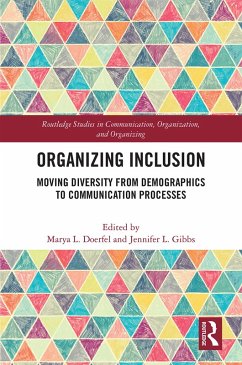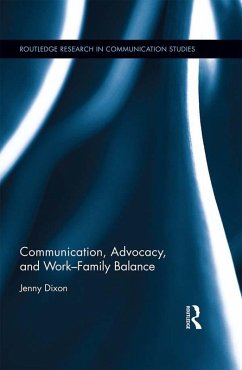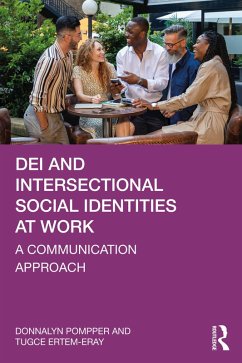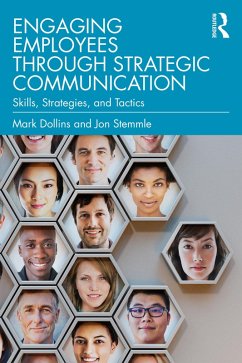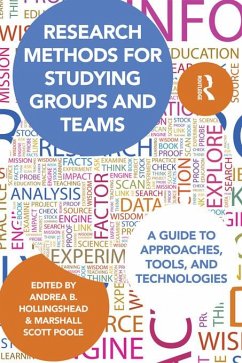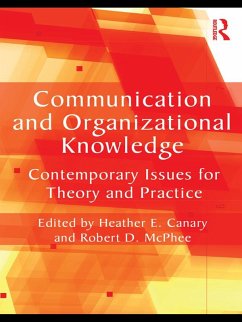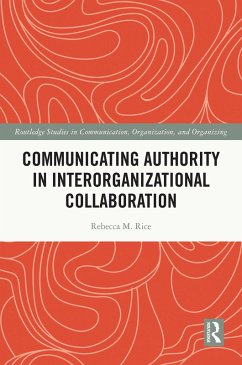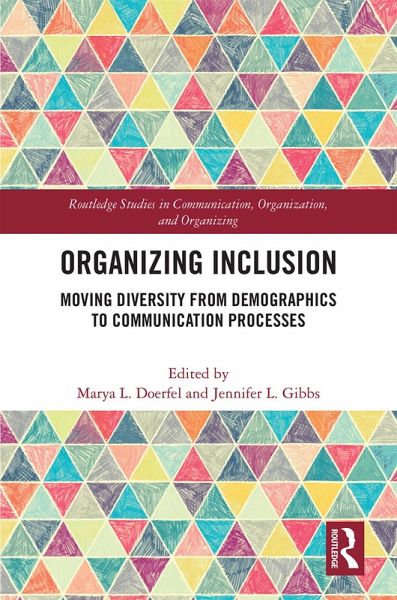
Organizing Inclusion (eBook, PDF)
Moving Diversity from Demographics to Communication Processes
Redaktion: Doerfel, Marya L.; Gibbs, Jennifer L.
Versandkostenfrei!
Sofort per Download lieferbar
42,95 €
inkl. MwSt.
Weitere Ausgaben:

PAYBACK Punkte
21 °P sammeln!
Organizing Inclusion brings communication experts together to examine issues of inclusion and exclusion, which have emerged as a major challenge as both society and the workforce become more diverse.Connecting communication theories to diversity and inclusion, and clarifying that inclusion is about the communication processes of organizations, institutions, and communities, the book explores how communication as an organizing phenomenon underlies systemic and institutionalized biases and generates practices that privilege certain groups while excluding or marginalizing others. Bringing a globa...
Organizing Inclusion brings communication experts together to examine issues of inclusion and exclusion, which have emerged as a major challenge as both society and the workforce become more diverse.
Connecting communication theories to diversity and inclusion, and clarifying that inclusion is about the communication processes of organizations, institutions, and communities, the book explores how communication as an organizing phenomenon underlies systemic and institutionalized biases and generates practices that privilege certain groups while excluding or marginalizing others. Bringing a global perspective that transcends particular problems faced by Western cultures, the contributors address issues across sub-disciplines of communication studies, ranging from social and environmental activism to problems of race, gender, sexual orientation, age and ability. With these various perspectives, the chapters go beyond demographic diversity by addressing interaction and structural processes that can be used to promote inclusion. Using these multiple theoretical frameworks, Organizing Inclusion is an intellectual resource for improving theoretical understanding and practical applications that come with ever more diverse people working, coordinating, and engaging one another.
The book will be of great relevance to organizational stakeholders, human resource personnel and policy makers, as well as to scholars and students working in the fields of communication, management, and organization studies.
Connecting communication theories to diversity and inclusion, and clarifying that inclusion is about the communication processes of organizations, institutions, and communities, the book explores how communication as an organizing phenomenon underlies systemic and institutionalized biases and generates practices that privilege certain groups while excluding or marginalizing others. Bringing a global perspective that transcends particular problems faced by Western cultures, the contributors address issues across sub-disciplines of communication studies, ranging from social and environmental activism to problems of race, gender, sexual orientation, age and ability. With these various perspectives, the chapters go beyond demographic diversity by addressing interaction and structural processes that can be used to promote inclusion. Using these multiple theoretical frameworks, Organizing Inclusion is an intellectual resource for improving theoretical understanding and practical applications that come with ever more diverse people working, coordinating, and engaging one another.
The book will be of great relevance to organizational stakeholders, human resource personnel and policy makers, as well as to scholars and students working in the fields of communication, management, and organization studies.
Dieser Download kann aus rechtlichen Gründen nur mit Rechnungsadresse in A, B, BG, CY, CZ, D, DK, EW, E, FIN, F, GR, HR, H, IRL, I, LT, L, LR, M, NL, PL, P, R, S, SLO, SK ausgeliefert werden.




